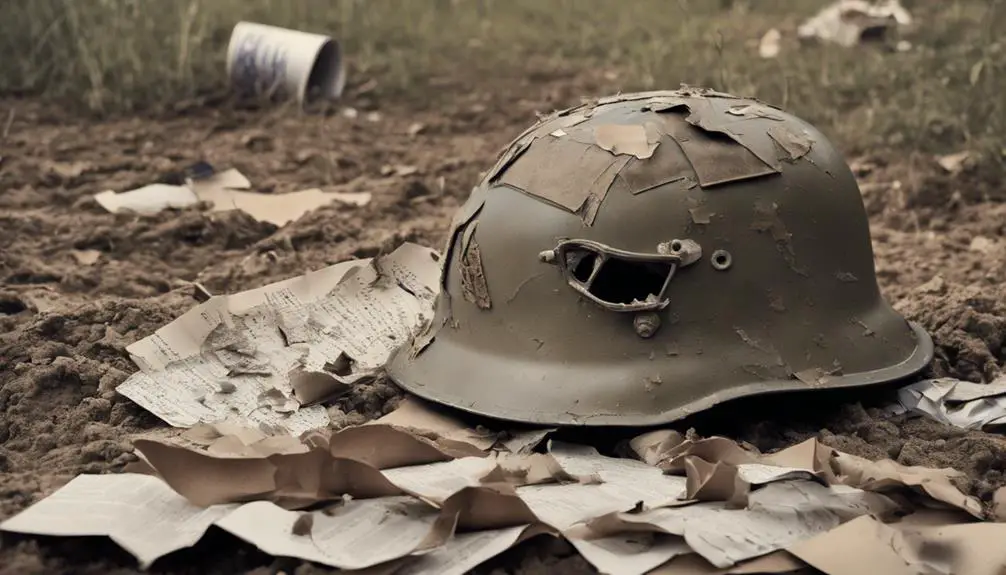You might think military slang is all about bonding, but the reality is that derogatory terms and stereotypes are pervasive, creating a hostile work environment. Racial slurs, sexist slang, and insults among comrades erode respect, inclusivity, and trust. Even humor can be divisive, masking deeper issues. You'll find that derogatory slang not only disrespects authority but also undermines the chain of command. Behind closed doors, unit-specific slang and mocking rival units can be unifying or divisive. As you explore further, you'll uncover the complexities of derogatory military slang and its far-reaching consequences.
Racial Slurs in the Ranks
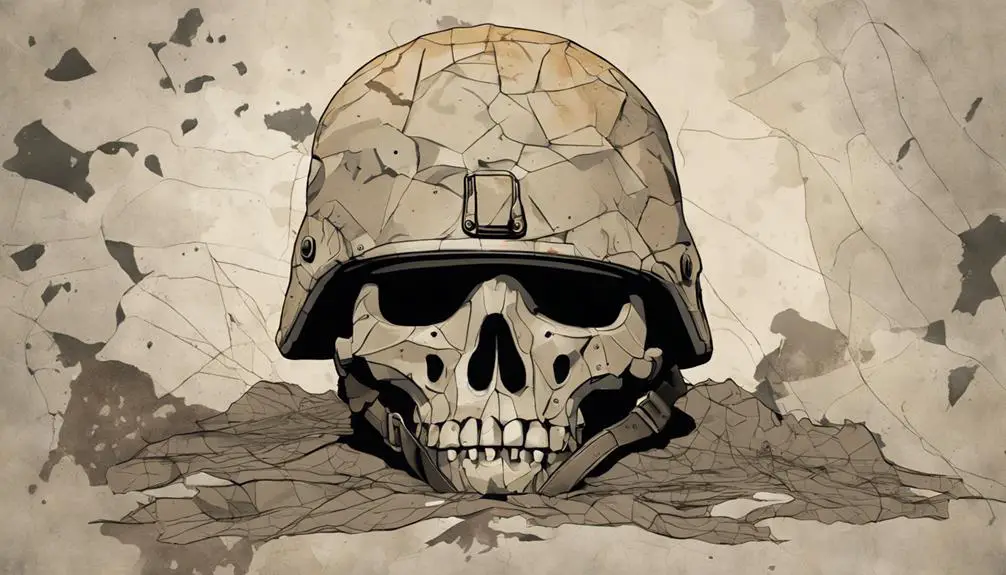
Racial slurs have been a persistent problem in the military, with surveys suggesting that nearly one in five service members have experienced racial or ethnic harassment during their time in the ranks. You might think that an institution like the military, built on unity and camaraderie, would be immune to such issues. However, the harsh reality is that cultural insensitivity and lingering prejudices still plague the armed forces.
As you navigate the ranks, you'll likely encounter derogatory terms and stereotypes that can create a hostile work environment. It's not just about being 'politically correct' – it's about respecting your fellow service members and recognizing that everyone deserves dignity and respect, regardless of their race or ethnicity.
When you're part of a team that's supposed to have your back, it can be especially jarring to encounter racial slurs or discriminatory behavior. It's essential to recognize that these actions aren't just harmless jokes or 'banter' – they can be deeply hurtful and damaging.
Sexist Slang and Gender Bias
As you interact with your fellow service members, you'll likely encounter sexist slang and gender biases that can be just as corrosive to unit cohesion as racial slurs. These biases can manifest in language, perpetuating harmful gender stereotypes that reduce individuals to simplistic, inaccurate, and often demeaning categorizations.
You may hear comments that objectify women, reducing them to their physical appearance or sexualizing them, rather than valuing their skills and contributions. This sexual objectification can create a hostile environment, making it difficult for women to feel respected and valued within the military.
Moreover, gender stereotypes can lead to unfair expectations and biases, limiting opportunities for individuals who don't conform to traditional gender roles. For instance, women may be seen as less capable in combat or leadership roles, while men may be expected to be more aggressive and dominant. These biases can be damaging, as they undermine the potential of individual service members and hinder the overall effectiveness of the military.
It's essential to recognize and address these biases, promoting a culture of respect and inclusivity that values diversity and individual strengths. By doing so, you can help create a more cohesive and effective military unit.
The Enemy Within: Insults Among Comrades
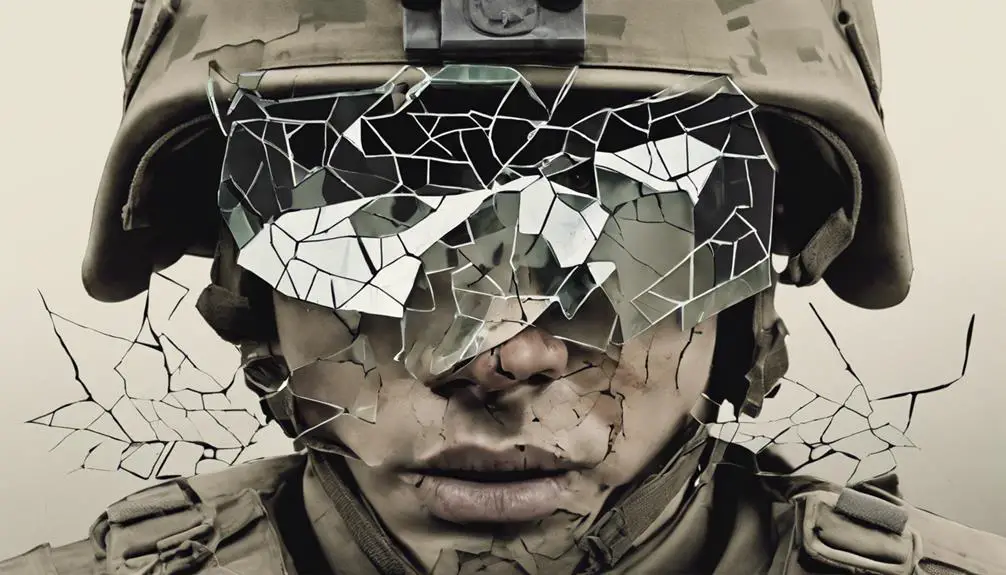
When you're surrounded by comrades who use derogatory slang to tear each other down, the enemy within your own ranks can be just as damaging as external threats. This phenomenon, known as 'buddy betrayal,' can erode trust and morale, weakening the very fabric of your unit. It's a toxic dynamic where comrades turn against each other, using insults and put-downs to assert dominance or gain favor.
Unit cliques often emerge as a result, with certain members forming tight-knit groups that exclude others. This exclusion can lead to feelings of isolation and resentment, further dividing your team. The effects can be devastating, as camaraderie and cohesion – essential for success in high-pressure military operations – begin to unravel.
Leaders must recognize the warning signs of buddy betrayal and take proactive measures to promote a culture of respect and inclusivity. By doing so, you can mitigate the destructive power of derogatory slang and foster a stronger, more united team.
Rank and File: Disrespecting Authority
In the rigid hierarchy of military ranks, derogatory slang can seep into the language, eroding respect for authority and undermining the chain of command. You might hear junior enlisted personnel referring to their superiors as 'brass' or 'desk jockeys,' implying that they're out of touch with the realities of combat. Officers, in turn, might be called 'butterbars' or 'lieutenants,' implying inexperience and incompetence. This kind of language can be particularly damaging when it's directed at senior officers, as it can erode the respect and trust that's crucial for effective leadership.
The Officer Complex, a term used to describe the perceived elitism and detachment of high-ranking officers, can also contribute to this disrespect. When you're in the trenches, it's easy to view officers as out of touch with the realities of combat. But this kind of thinking can be corrosive, undermining the chain of command and creating divisions within the ranks.
As you navigate the complexities of military life, it's important to recognize the dangers of derogatory slang and work towards a culture of respect and professionalism.
Self-Deprecation and Dark Humor
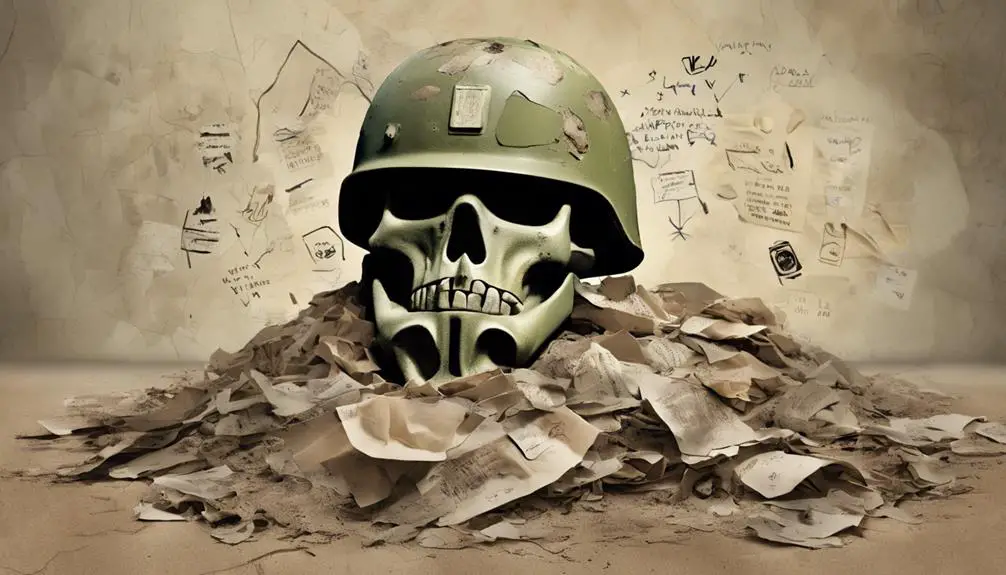
Self-deprecation and dark humor serve as coping mechanisms for military personnel, allowing you to momentarily escape the crushing weight of responsibility and the constant specter of mortality. You use gallows humor to poke fun at the dire situations you often find yourself in, making light of the danger and uncertainty that comes with military life. This twisted sense of humor becomes a defense mechanism, helping you to maintain your sanity in the face of chaos.
Battle jokes, for instance, are a way to laugh at the absurdity of war, making the unbearable more bearable. You might joke about the poor food, the endless drills, or the absurdity of bureaucratic red tape. This type of humor serves as a pressure valve, releasing tension and anxiety.
Ethnic Epithets in the Military
You're likely familiar with the derogatory terms used to describe fellow service members based on their ethnicity, a phenomenon that's disturbingly prevalent in military culture. These ethnic epithets not only perpetuate harmful stereotypes but also undermine the cohesion and unity essential to military effectiveness. The use of such slurs can be particularly damaging to individuals from marginalized groups, who may already face challenges in their military careers.
The consequences of ethnic epithets extend beyond the individual, as they can:
- Erode trust: By creating a hostile environment, ethnic slurs can break down the trust and camaraderie vital to military success.
- Undermine cultural assimilation: The use of derogatory terms can hinder the integration of diverse backgrounds and experiences, ultimately weakening the military's collective strength.
- Perpetuate identity politics: By emphasizing differences and fostering divisions, ethnic epithets can create an 'us versus them' mentality, undermining the military's commitment to unity and cooperation.
It's essential to recognize the harm caused by ethnic epithets and work towards creating a culture of respect, inclusivity, and understanding within the military.
Pejorative Terms for New Recruits
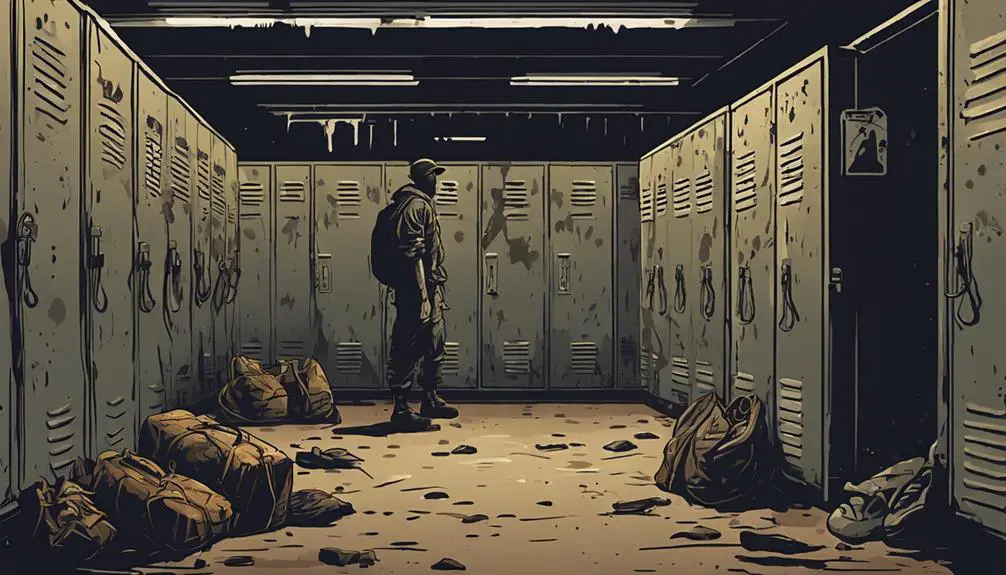
Frequently, newly enlisted personnel are subjected to a barrage of pejorative terms, which can be a jarring introduction to military life. You'll likely encounter a slew of derogatory nicknames, meant to break you down and rebuild you in the military's image. These terms are often used to assert dominance and establish a hierarchy within the ranks.
Here's a glimpse into the world of pejorative terms for new recruits:
| Term | Description | Branch |
|---|---|---|
| FNG (Freaking New Guy) | Used to describe a new recruit, implying inexperience and cluelessness | Army |
| Boot | Refers to a new recruit, emphasizing their inexperience and need for training | Marine Corps |
| Noob | Derogatory term for a new recruit, implying incompetence | Air Force |
These terms are often used to haze new recruits, as a form of Rookie Ridicule. You might be called a "Boot" in the Marine Corps or an "FNG" in the Army. These Boot Camp Nicknames can be humiliating, but they're a rite of passage for many new recruits. Remember, this is just the beginning of your military journey.
Behind Closed Doors: Insults and In-Groups
Behind closed doors, military personnel often engage in derogatory banter, using insults and pejorative terms to reinforce in-group dynamics and establish social hierarchies. As you navigate the complex web of military social structures, you'll find that insider jokes and playful teasing serve as a way to solidify bonds within units. However, this banter can quickly turn exclusionary, leaving outsiders feeling ostracized and marginalized.
- Rank-based ridicule: Junior personnel are often the targets of good-natured teasing, which can blur the lines between playful joking and outright bullying.
- Unit-specific slang: Unique terminology and acronyms are used to create a sense of exclusivity, making outsiders feel like they don't belong.
- Mocking rival units: Friendly rivalries between units can escalate into derogatory name-calling, reinforcing social hierarchies and fostering a sense of superiority.
These dynamics can be both unifying and divisive, depending on your position within the hierarchy. As you navigate the intricate social landscape of the military, it's essential to recognize the fine line between harmless joking and hurtful insults.
Frequently Asked Questions
Are Derogatory Terms More Prevalent in Certain Military Branches?
When you examine the prevalence of derogatory terms across military branches, you'll notice variations. Comparing branches, you'll find that some, like the Army, have a more individualistic culture, which may foster derogatory language.
Meanwhile, branches like the Navy, with a stronger emphasis on teamwork, might've fewer instances. Cultural influences, such as the branch's history and values, also play a role.
You'll need to take into account these factors to understand the nuances of derogatory term usage across different military branches.
Can Military Personnel Be Punished for Using Derogatory Slang?
Understanding the limits of freedom of speech is crucial for military personnel. While you have the right to express yourself, using derogatory slang can result in legal consequences.
If you're proven to have used discriminatory language, you could be subject to disciplinary measures, such as reprimands, fines, or potentially court-martial. It's important to acknowledge that free speech doesn't equate to being exempt from repercussions.
Do Derogatory Terms Affect Morale and Unit Cohesion?
Imagine being part of a tight-knit unit, where camaraderie and trust are essential. Now, picture a team member using derogatory terms, creating an uncomfortable atmosphere.
You'll likely notice a decline in Team Dynamics, as morale takes a hit. Esprit De Corps, the sense of unity and pride, begins to fray.
When derogatory terms are used, it can lead to feelings of exclusion, affecting unit cohesion and overall performance.
It's imperative to address this issue to maintain a positive, productive team environment.
Is There a Distinction Between Slang and Official Military Terminology?
You're wondering if there's a distinction between slang and official military terminology. The answer lies in linguistic nuance.
Official terms are standardized, formal language used in military communications, whereas slang emerges as informal, colloquial expressions used by service members.
As terminology evolves, some slang terms may be adopted into official language, blurring the lines. Understanding this distinction is essential in maintaining clear communication and avoiding misinterpretation.
Can Derogatory Slang Be Used as a Form of Social Control?
As you examine the use of derogatory slang, consider how it can function as a means of social control.
You'll find that it often reinforces existing power dynamics, perpetuating social hierarchy and influencing identity formation.
Conclusion
As you gaze upon the military's reflection, you see a cracked mirror, distorted by the weight of derogatory slang. The shards of racial slurs, sexist language, and ethnic epithets pierce the surface, revealing a complex web of biases and prejudices.
The image that emerges is a labyrinth of insults, where comrades become enemies, and authority is disrespected. In this hall of mirrors, the military's true self is obscured, and the darkness within is reflected back, a stark reminder that the greatest enemy lies within.

